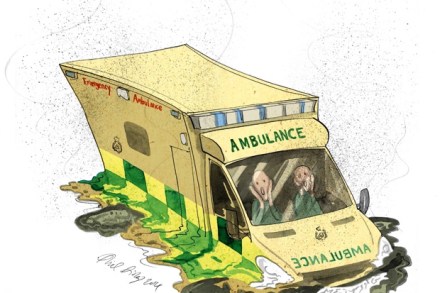Is staff sickness crippling the NHS?
Some £22 billion of the £40 billion in tax rises the Chancellor announced this week will go straight to the NHS – an NHS that was already better funded than at any point in its history. It seems that no matter how many cash injections – huge or enormous – the health service gets, its problems continue. Could staff sickness be part of the problem? I’ve crunched the numbers for The Spectator’s data hub and this is what I found. The NHS is a notoriously stressful place to work and The Spectator’s analysis of sickness data for hospital and community services staff shows the toll it takes – as well as the huge




















